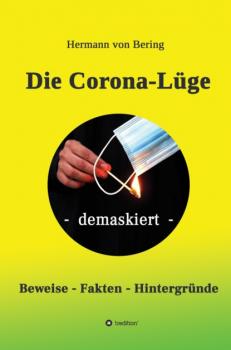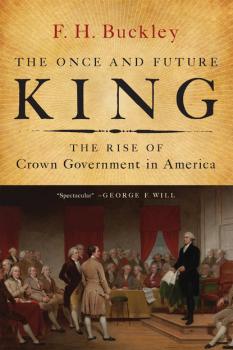Зарубежная публицистика
Различные книги в жанре Зарубежная публицистикаCorona und der "Grosse Neustart"
Die Coronawahnsinn hat uns fest im Griff. Dieses Buch klärt anhand von Fakten sachlich auf. Das Buch bezieht sich ausschliesslich auf offizielle Quellen, Aussagen und Dokumente der Weltgesundheitsorganisation, der Wissenschaft, der Politik , der Medien und des Weltwirtschaftsforums. Die Coronapandemie ist entstanden und wird aufrechterhalten aufgrund von fehlerhaften Annahmen der Weltgesundheitsorganisation, der Mainstream-Wissenschaft und der Politik. Letztlich ist die Coronapandemie ein Artefakt: – einer Pandemiedefinition der WHO, die heute aus jeder Grippe eine Pandemie gemacht werden kann. – des PCR-Tests, der methodische Mängel aufweist und der nicht unterscheiden kann zwischen infizierten und infektiösen Personen. – der Formel «Positiver PCR-Test = infiziert = infektiös», mit der die WHO alle Infizierten zu Infektiösen macht. – und der Positivitätsrate und des R-Werts, die beide keine Aussagekraft über die Gefährlichlichkeit des Virus machen, aber anhand denen die Politik ihre Massnahmen beschliesst. Wenn die Coronapandemie ein Artefakt ist, um was geht es dann? Bei der Coronapandemie geht es um das Finanzsystem, das vor dem Kollaps steht. Die «Corona-Schutzmassnahmen» richten die Wirtschaft und vor allem den Mittelstand zugrunde. Das ist die Voraussetzung für den «Great Reset» – den «Grossen Neustart», den die Finanz- und Wirtschaftselite zur Einführung eines neuen Geldsystems plant. Klaus Schwab, der Gründer des Weltwirtschaftsforums und der Promotor des «Grossen Neustarts» will die Menschheit in eine technologische und technokratische Welt führen, in der letztlich eine Elite aus dem Finanz- und Wirtschaftssystem die weltweite politische Führung übernimmt.
Was Sie durch dieses Buch erfahren: – wie die Coronapandemie entstanden und bis heute aufrechterhalten wird. wie die Finanz- und Wirtschaftselite mit dem «Great Reset» die weltweite politische Führung übernehmen will – und was für eine Welt uns im «Grossen Neustart» erwartet
Up Against the Wall
The book offers a step-by-step blueprint of radical proposals for the U.S.-Mexican border that go far beyond traditional initiatives to ease restrictions on immigration. Up Against the Wall provides the background to understanding how the border has become a fraud, resulting in nothing more than the criminalization of Mexican and other migrants. The book argues that the border with Mexico should be completely open for Mexicans wishing to travel north.
Die Corona-Lüge - demaskiert
Dieses Buch untersucht erstmals das Corona-Phänomen in seiner Gesamtheit und deckt jede Menge Widersprüche auf. Eine Fülle von Informationen werden mit hunderten von Quellen belegt und wecken Zweifel an der offiziellen Darstellung des Virus, der Krankheit und dem Sinn der Maßnahmen. Es werden die politischen Hintergründe offen gelegt, die für den wirtschaftlichen Niedergang verantwortlich sind.
Das Buch beantwortet wichtige Fragen, wie: Kann der PCR-Test überhaupt Infektionen feststellen? Mit welcher Genauigkeit? Warum zeigen die Statistiken viel zu hohe Fallzahlen? Wie gefährlich ist das Virus wirklich? Woran sind die Coronatoten gestorben? Welchen Nutzen und welchen Schaden bringen die Masken? Können Lockdowns und Abstandsregeln helfen? Kann die Impfung schützen? Oder sind Nebenwirkungen zu befürchten? War die Krise geplant? Gab es Vorbereitungen? Wer hat ein Interesse an einer weltweiten Krise? Wohin soll das führen? Ist die Demokratie in Gefahr? Was wird aus unseren Grundrechten?
Aus tausenden Dokumenten hat der Autor die Fakten recherchiert, die in den Medien nicht genannt werden und präsentiert sie auch für den Laien gut verständlich. Trotz wissenschaftlicher Erklärungen liest sich das Buch leicht, da es der Autor versteht, das komplexe Thema durch gelegentliche ironische Kommentare aufzulockern.
The Fracturing of the E.U.
The long-simmering crises challenging the European Union have worsened with the 2008 financial crisis, the influx of Middle East refugees in 2015, several bloody terrorist attacks, and England’s departure from the E.U. in 2016. Yet these are all the wages of persistent flaws in the idea of the Union itself. Excessive regulations, welfare, and taxes impede economic growth. Centralization of power in Brussels has created a “democracy deficit” and lessened autonomy and freedom. Populations are shrinking, and unvetted and unassimilated migrants have increased crime and terrorist attacks. All these problems reflect the lack of any unifying set of beliefs and principles that could unite 27 diverse cultures and peoples. Europe is fractured and adrift, its peoples unsure for what they should fight or die for.
Return to Winter
The United States is a nation in crisis. While Washington’s ability to address our most pressing challenges has been rendered nearly impotent by ongoing partisan warfare, we face an array of foreign-policy crises for which we seem increasingly unprepared. Among these, none is more formidable than the unprecedented partnership developing between Russia and China, suspicious neighbors for centuries and fellow Communist antagonists during the Cold War. The two longtime foes have drawn increasingly close together because of a confluence of geostrategic, political, and economic interests—all of which have a common theme of diminishing, subverting, or displacing American power. While America’s influence around the world recedes—in its military and diplomatic power, in its political leverage, in its economic might, and, perhaps most dangerously, in the power and appeal of its ideas—Russia and China have seen their influence increase. From their support for rogue regimes such as those in Iran, North Korea, and Syria to their military and nuclear buildups to their aggressive use of cyber warfare and intelligence theft, Moscow and Beijing are playing the game for keeps. Meanwhile America, pledged to “leading from behind,” no longer does much leading at all. In Return to Winter, Douglas E. Schoen and Melik Kaylan systematically chronicle the growing threat from the Russian-Chinese Axis, and they argue that only a rebirth of American global leadership can counter the corrosive impact of this antidemocratic alliance, which may soon threaten the peace and security of the world.
The Once and Future King
This remarkable book shatters just about every myth surrounding American government, the Constitution, and the Founding Fathers, and offers the clearest warning about the alarming rise of one-man rule in the age of Obama.Most Americans believe that this country uniquely protects liberty, that it does so because of its Constitution, and that for this our thanks must go to the Founders, at their Convention in Philadelphia in 1787.F. H. Buckley’s book debunks all these myths. America isn’t the freest country around, according to the think tanks that study these things. And it’s not the Constitution that made it free, since parliamentary regimes are generally freer than presidential ones. Finally, what we think of as the Constitution, with its separation of powers, was not what the Founders had in mind. What they expected was a country in which Congress would dominate the government, and in which the president would play a much smaller role.Sadly, that’s not the government we have today. What we have instead is what Buckley calls Crown government: the rule of an all-powerful president. The country began in a revolt against one king, and today we see the dawn of a new kind of monarchy. What we have is what Founder George Mason called an “elective monarchy,” which he thought would be worse than the real thing.Much of this is irreversible. Constitutional amendments to redress the balance of power are extremely unlikely, and most Americans seem to have accepted, and even welcomed, Crown government. The way back lies through Congress, and Buckley suggests feasible reforms that it might adopt, to regain the authority and respect it has squandered.
The Russia-China Axis
The United States is a nation in crisis. While Washington’s ability to address our most pressing challenges has been rendered nearly impotent by ongoing partisan warfare, we face an array of foreign-policy crises for which we seem increasingly unprepared. Among these, none is more formidable than the unprecedented partnership developing between Russia and China, suspicious neighbors for centuries and fellow Communist antagonists during the Cold War. The two longtime foes have drawn increasingly close together because of a confluence of geostrategic, political, and economic interests—all of which have a common theme of diminishing, subverting, or displacing American power. While America’s influence around the world recedes—in its military and diplomatic power, in its political leverage, in its economic might, and, perhaps most dangerously, in the power and appeal of its ideas—Russia and China have seen their influence increase. From their support for rogue regimes such as those in Iran, North Korea, and Syria to their military and nuclear buildups to their aggressive use of cyber warfare and intelligence theft, Moscow and Beijing are playing the game for keeps. Meanwhile America, pledged to “leading from behind,” no longer does much leading at all. In The Russia-China Axis, Douglas E. Schoen and Melik Kaylan systematically chronicle the growing threat from the Russian-Chinese Axis, and they argue that only a rebirth of American global leadership can counter the corrosive impact of this antidemocratic alliance, which may soon threaten the peace and security of the world.
Moore vs. Krugman
What happens when a leading conservative economist goes mano a mano with today’s most influential exponent of left-liberal economics, over free markets versus government interventionism? Here are highlights of that showdown between Stephen Moore of the Heritage Foundation and Paul Krugman, Nobel laureate.Moore and Krugman sparred over eight major economic issues in our national debate – from whether the policy response to the crisis of 2008 was successful, to the outlook for Obamacare, to the “red state / blue state” divide. The contest was cordial and spiced with wit. (Does air conditioning explain the migration from blue to red states? Is Houston still uninhabitable?)This high-powered matchup illuminates a clash of worldview that leads to opposing policy prescriptions. More important, it will help you draw conclusions about which economic policies work.
Reframing Syrian Refugee Insecurity through a Feminist Lens
While there has been a shift in security studies from the security of states to that of people, realpolitik still takes place under the banner of an emerging discourse of "refugee crisis." Located at the intersection of security studies and refugee scholarship, this book is both a process and a product. It explores the multi-leveled sites of refugee security construction and policy translation that play an instrumental role in informing how Syrian refugee insecurity is engendered and experienced in the case of Lebanon. It sheds light on how impromptu choices made by involved bodies—such as the Lebanese government and the UNHCR—can significantly impact local realities, creating a vicious cycle of Syrian refugee insecurities.









